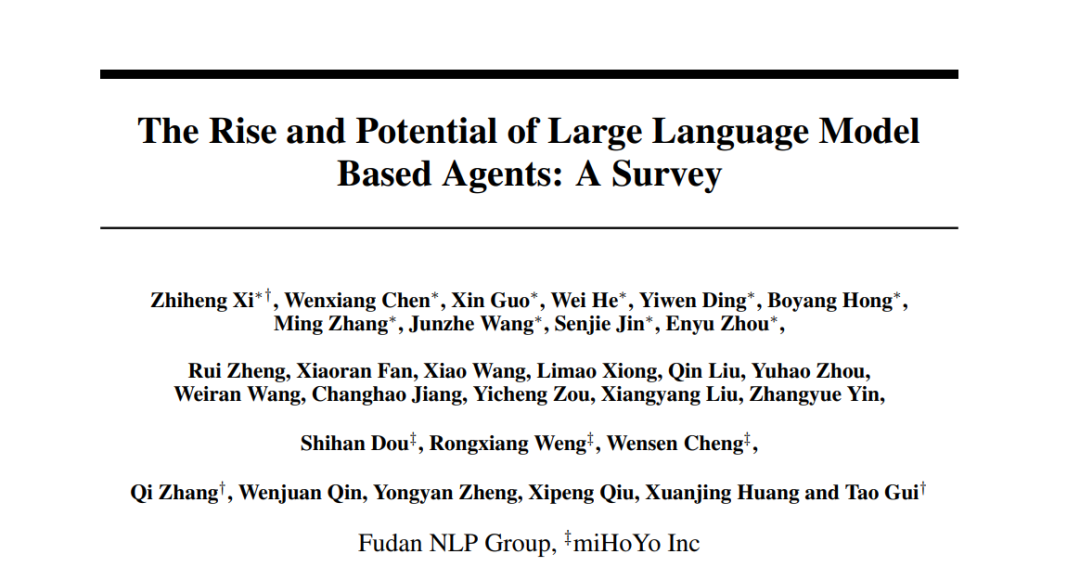Introduction: J.A.R.V.I.S from Iron Man
In the movie Iron Man, J.A.R.V.I.S is an impressive AI assistant. As Tony’s capable aide, he is both reliable and intelligent, capable of connecting to any computer terminal, controlling Tony’s Iron Man suit, and discussing action plans with Tony.
The success of J.A.R.V.I.S lies in his highly intelligent AI system, which can understand and execute human commands while also possessing the ability to learn and evolve autonomously.

Having an AI assistant like J.A.R.V.I.S has always been a beautiful dream for humanity regarding machine partners. However, in reality, people can only interact with less intelligent voice assistants like Siri, Xiao Ai, and Baidu Dudu. It wasn’t until the emergence of large language models that new possibilities arose—enter the new AI Agents, empowered by large model capabilities.
OpenAI Defines AI Agents
In recent years, leading AI research companies like OpenAI have been researching and developing advanced AI technologies.
OpenAI co-founder Andrej Karpathy stated at a developer event that if a paper proposes a different model training method, it is often dismissed internally, but when new AI Agents papers come out, they are discussed with serious excitement. OpenAI’s Director of AI Application Research, Lilian Weng, published a lengthy article on AI Agents: “Autonomous Agents Powered by Large Language Models (LLM)”, which sparked industry discussions.
OpenAI’s Director of AI Application Research, Lilian Weng, published a lengthy article on AI Agents: “Autonomous Agents Powered by Large Language Models (LLM)”, which sparked industry discussions.  In the article, she clearly defines the application framework for building AI Agents based on LLM: Agent = LLM (Large Language Model) + Memory + Planning Skills + Tool Use, where LLM serves as the brain of the agent, while the other components are critical elements.
In the article, she clearly defines the application framework for building AI Agents based on LLM: Agent = LLM (Large Language Model) + Memory + Planning Skills + Tool Use, where LLM serves as the brain of the agent, while the other components are critical elements.
AI Agents (fully autonomous agents) can be likened to having “memory,” allowing them to remember what they have learned during training.
OpenAI’s research also indicates that AI Agents, as a new type of AI system, possess enormous potential and broad application prospects. AI Agents can make decisions based on their goals and environments without external intervention. This autonomy enables AI Agents to independently complete tasks in complex environments, thereby improving efficiency and accuracy.
The Next Milestone: AI Agents
With the continuous development of technology, artificial intelligence (AI) has become an indispensable part of our lives. From smartphones and autonomous driving to smart homes, AI applications are ubiquitous.
Although we have made significant progress in artificial intelligence, there is still much potential waiting to be explored. On the path of AI development, AI Agents may be the next important milestone.
Bill Gates, the founder of Microsoft, has also made predictions about the development of AI. In a blog post, he wrote, “In the coming decades, artificial intelligence will be a key driver of economic growth and social progress.” He believes that AI Agents will be an important innovation that will change the way we live and work.
AI Agents can engage in natural language communication and emotional recognition with humans, achieving more natural human-machine interaction. They can be distributed across different devices and network nodes, enabling distributed computing and collaborative work, thus enhancing efficiency and performance. By learning and reasoning, AI Agents can continuously optimize their performance and decision-making capabilities to better cope with complex and changing environments and tasks.Additionally, AI Agents can leverage vast amounts of data and knowledge bases to provide accurate and comprehensive information and advice, helping users solve various problems and complete tasks.
These advantages make AI Agents outstanding in handling large-scale data and complex tasks, and they are expected to play a key role in the future development of artificial intelligence.
Breakthroughs of AI Agents in Various Fields
In the past two to three months, many projects and research related to AI Agents have emerged. These projects span various fields,such as industrial automation, enterprise applications, personal assistants, scientific research, etc., showcasing the broad application prospects of AI Agents across different domains.
Google DeepMind’s Robotic Agent utilizes robotic arms to automatically perform various tasks, marking a step forward in the application of AI Agents in industrial automation. Amazon’s Amazon Bedrock Agents focus on the automatic decomposition of enterprise AI application development tasks, which helps improve the efficiency and quality of enterprise development. The AI unicorn Inflection has developed a personal AI assistant that can help users with personal tasks like booking hotels, indicating that AI Agents have begun to enter people’s daily lives. Columbia University’s GPT Researcher project is an AI Agent for scientific research, demonstrating that AI Agents are starting to be applied in the field of scientific research.
From industrial automation to personal assistants, AI Agents have forged ahead.